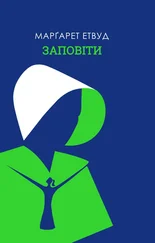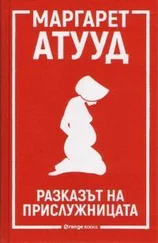Margaret Atwood
THE TESTAMENTS
“Every woman is supposed to have the same set of motives, or else to be a monster.”
—GEORGE ELIOT,
DANIEL DERONDA
“When we look one another in the face, we’re neither of us just looking at a face we hate—no, we’re gazing into a mirror…. Do you really not recognize yourselves in us…?”
—OBERSTURMBANNFÜHRER LISS TO OLD BOLSHEVIK MOSTOVSKOY, VASILY GROSSMAN,
LIFE AND FATE
“Freedom is a heavy load, a great and strange burden for the spirit to undertake…. It is not a gift given, but a choice made, and the choice may be a hard one.”
—URSULA K. LE GUIN,
THE TOMBS OF ATUAN
I
Statue

The Ardua Hall Holograph
Only dead people are allowed to have statues, but I have been given one while still alive. Already I am petrified.
This statue was a small token of appreciation for my many contributions, said the citation, which was read out by Aunt Vidala. She’d been assigned the task by our superiors, and was far from appreciative. I thanked her with as much modesty as I could summon, then pulled the rope that released the cloth drape shrouding me; it billowed to the ground, and there I stood. We don’t do cheering here at Ardua Hall, but there was some discreet clapping. I inclined my head in a nod.
My statue is larger than life, as statues tend to be, and shows me as younger, slimmer, and in better shape than I’ve been for some time. I am standing straight, shoulders back, my lips curved into a firm but benevolent smile. My eyes are fixed on some cosmic point of reference understood to represent my idealism, my unflinching commitment to duty, my determination to move forward despite all obstacles. Not that anything in the sky would be visible to my statue, placed as it is in a morose cluster of trees and shrubs beside the footpath running in front of Ardua Hall. We Aunts must not be too presumptuous, even in stone.
Clutching my left hand is a girl of seven or eight, gazing up at me with trusting eyes. My right hand rests on the head of a woman crouched at my side, her hair veiled, her eyes upturned in an expression that could be read as either craven or grateful—one of our Handmaids—and behind me is one of my Pearl Girls, ready to set out on her missionary work. Hanging from a belt around my waist is my Taser. This weapon reminds me of my failings: had I been more effective, I would not have needed such an implement. The persuasion in my voice would have been enough.
As a group of statuary it’s not a great success: too crowded. I would have preferred more emphasis on myself. But at least I look sane. It could well have been otherwise, as the elderly sculptress—a true believer since deceased—had a tendency to confer bulging eyes on her subjects as a sign of their pious fervour. Her bust of Aunt Helena looks rabid, that of Aunt Vidala is hyperthyroid, and that of Aunt Elizabeth appears ready to explode.
At the unveiling the sculptress was nervous. Was her rendition of me sufficiently flattering? Did I approve of it? Would I be seen to approve? I toyed with the idea of frowning as the sheet came off, but thought better of it: I am not without compassion. “Very lifelike,” I said.
That was nine years ago. Since then my statue has weathered: pigeons have decorated me, moss has sprouted in my damper crevices. Votaries have taken to leaving offerings at my feet: eggs for fertility, oranges to suggest the fullness of pregnancy, croissants to reference the moon. I ignore the breadstuffs—usually they have been rained on—but pocket the oranges. Oranges are so refreshing.
—
I write these words in my private sanctum within the library of Ardua Hall—one of the few libraries remaining after the enthusiastic book-burnings that have been going on across our land. The corrupt and blood-smeared fingerprints of the past must be wiped away to create a clean space for the morally pure generation that is surely about to arrive. Such is the theory.
But among these bloody fingerprints are those made by ourselves, and these can’t be wiped away so easily. Over the years I’ve buried a lot of bones; now I’m inclined to dig them up again—if only for your edification, my unknown reader. If you are reading, this manuscript at least will have survived. Though perhaps I’m fantasizing: perhaps I will never have a reader. Perhaps I’ll only be talking to the wall, in more ways than one.
That’s enough inscribing for today. My hand hurts, my back aches, and my nightly cup of hot milk awaits me. I’ll stash this screed in its hiding place, avoiding the surveillance cameras—I know where they are, having placed them myself. Despite such precautions, I’m aware of the risk I’m running: writing can be dangerous. What betrayals, and then what denunciations, might lie in store for me? There are several within Ardua Hall who would love to get their hands on these pages.
Wait, I counsel them silently: it will get worse.
II
PRECIOUS FLOWER

Transcript of Witness Testimony 369A
You have asked me to tell you what it was like for me when I was growing up within Gilead. You say it will be helpful, and I do wish to be helpful. I imagine you expect nothing but horrors, but the reality is that many children were loved and cherished, in Gilead as elsewhere, and many adults were kind though fallible, in Gilead as elsewhere.
I hope you will remember, too, that we all have some nostalgia for whatever kindness we have known as children, however bizarre the conditions of that childhood may seem to others. I agree with you that Gilead ought to fade away—there is too much of wrong in it, too much that is false, and too much that is surely contrary to what God intended—but you must permit me some space to mourn the good that will be lost.
—
At our school, pink was for spring and summer, plum was for fall and winter, white was for special days: Sundays and celebrations. Arms covered, hair covered, skirts down to the knee before you were five and no more than two inches above the ankle after that, because the urges of men were terrible things and those urges needed to be curbed. The man eyes that were always roaming here and there like the eyes of tigers, those searchlight eyes, needed to be shielded from the alluring and indeed blinding power of us—of our shapely or skinny or fat legs, of our graceful or knobbly or sausage arms, of our peachy or blotchy skins, of our entwining curls of shining hair or our coarse unruly pelts or our straw-like wispy braids, it did not matter. Whatever our shapes and features, we were snares and enticements despite ourselves, we were the innocent and blameless causes that through our very nature could make men drunk with lust, so that they’d stagger and lurch and topple over the verge—The verge of what? we wondered. Was it like a cliff?—and go plunging down in flames, like snowballs made of burning sulphur hurled by the angry hand of God. We were custodians of an invaluable treasure that existed, unseen, inside us; we were precious flowers that had to be kept safely inside glass houses, or else we would be ambushed and our petals would be torn off and our treasure would be stolen and we would be ripped apart and trampled by the ravenous men who might lurk around any corner, out there in the wide sharp-edged sin-ridden world.
Читать дальше
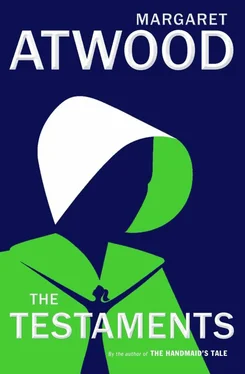



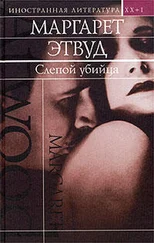
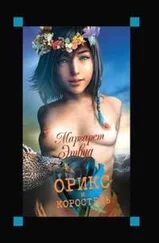
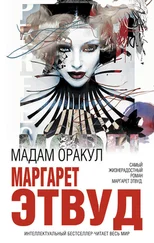
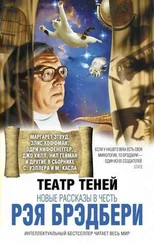
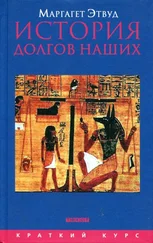
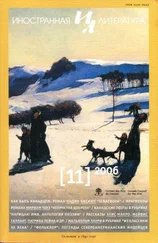
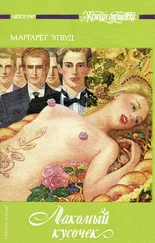
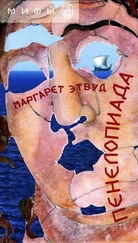
![Маргарет Этвуд - Лакомый кусочек [litres]](/books/384342/margaret-etvud-lakomyj-kusochek-litres-thumb.webp)
![Маргарет Этвуд - Избранные произведения в одном томе [Компиляция]](/books/389748/margaret-etvud-izbrannye-proizvedeniya-v-odnom-tome-thumb.webp)
